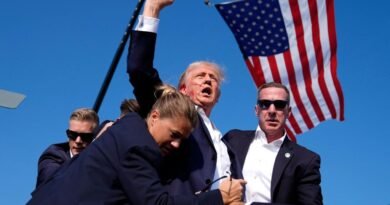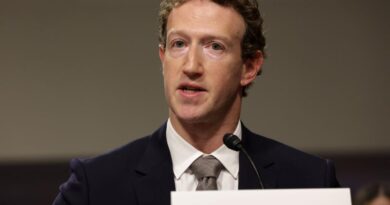Oral arguments hint at Supreme Court’s imminent dive into constitutional crisis with Trump-immunity case

Ray Bradbury, the writer, once said, “Living at risk is jumping off the cliff and building your wings on the way down.”
In a case before the Supreme Court on the immunity of former President Donald Trump on Thursday, nine justices seem to be frantically working on navigating a plunge into a constitutional abyss.
It has been nearly half a century since the high court ruled that presidents have absolute immunity from civil lawsuits in Nixon v. Fitzgerald.
The court determined that former President Richard Nixon had such immunity for acts carried out within his official responsibility’s ‘outer perimeter.’
However, in the case of United States v. Nixon in 1974, the court ruled that a president is not immune from a criminal subpoena. Nixon was required to comply with a subpoena for his White House tapes during the Watergate scandal from special counsel Leon Jaworski.
Since then, the court has avoided making any significant rulings on the extension of immunity to a criminal case until now.
There are risks on both sides of this case. If the court were to uphold special counsel Jack Smith’s arguments, a president would have no immunity from criminal charges, even for official acts taken during his presidency.
It would expose a president to endless charges from politically motivated prosecutors.
If the court were to agree with Trump’s counsel, a president would have complete immunity, leaving them largely unaccountable under the criminal code for any criminal acts.
The first risk is evident from the lower court opinion. While the media has focused on extreme examples like president-ordered assassinations and coups, the justices are equally concerned about the broad implications of the DC Circuit opinion.
Chief Justice John Roberts pointed out that the DC Circuit failed to provide a “focused” analysis of the underlying acts, offering little more than a judicial shrug.
Roberts highlighted their statement that “a former president can be prosecuted for his official acts because the fact of the prosecution means that the former president has acted in defiance of the laws,” likening it to stating “a former president can be prosecuted because he is being prosecuted.”
The other risk is evident from the other proceedings occurring during these arguments. Manhattan District Attorney Alvin Bragg turned out to be Trump’s most effective attorney.
If the justices want to understand the consequences of denying immunity, they need only look to New York City.
The ongoing prosecution of Trump is legally absurd but has led to the leading presidential candidate being gagged and unable to campaign.
Alvin Bragg embodies the very danger that immunity is designed to prevent.
With risks on both sides, the justices are facing a free-fall dive into the realm of constitutional and criminal law as they relate to presidential conduct.
They may be searching for a less drastic option rather than a complete fall.
Some of the justices may be seeking a third option where a president has some immunity under a more limited and less circular standard than the one offered by the DC Circuit.
One issue for the court is that decisions on presidential privilege and immunity are meant to provide clear boundaries within which presidents can operate.
Ambiguity undermines the purpose of such immunity, as does a standard that is based on the motivation behind an official act.
The special counsel argues, for example, that Trump was acting in his personal interest in challenging certification and alleging electoral fraud since he was the opposing candidate.
But what if he was not on the ballot—would it still have been an official function to raise such concerns for other candidates?
When pressed on the distinction between official and non-official conduct, the special counsel dismissed such concerns, stating that Trump was clearly acting as an office-seeker, not an officeholder.
Similarly, the special counsel asserts that presidential protection must rely on the good intentions and judgment of prosecutors.
This effectively amounts to a “Trust us, we’re the government” assurance. Justice Samuel Alito and others questioned whether such reliance is justified given the track record of prosecutor misconduct over the years.
Lastly, if there is no immunity, could President Barack Obama be prosecuted for ordering the killing of a citizen via drone attack and then killing his son in a second drone attack?
The government argued that there is an exception for such acts from the murder statute.
In the end, neither party presents an entirely appealing path. Complete immunity or no immunity each pose obvious risks.
I have long been opposed to broad claims of immunity from criminal charges for presidents. The challenge lies in the details, and many justices are struggling to define official versus non-official conduct.
The line-drawing proved to be frustrating for the justices during oral arguments. The most they could say is akin to the tale of the man who jumps off a building. As he passes by an office window halfway down, another man calls out to ask how he’s faring. The jumper responds, “So far so good.”
As the justices work on crafting a new legal framework, anything is possible as the nation awaits a decision that could impact the 2024 presidential election.



